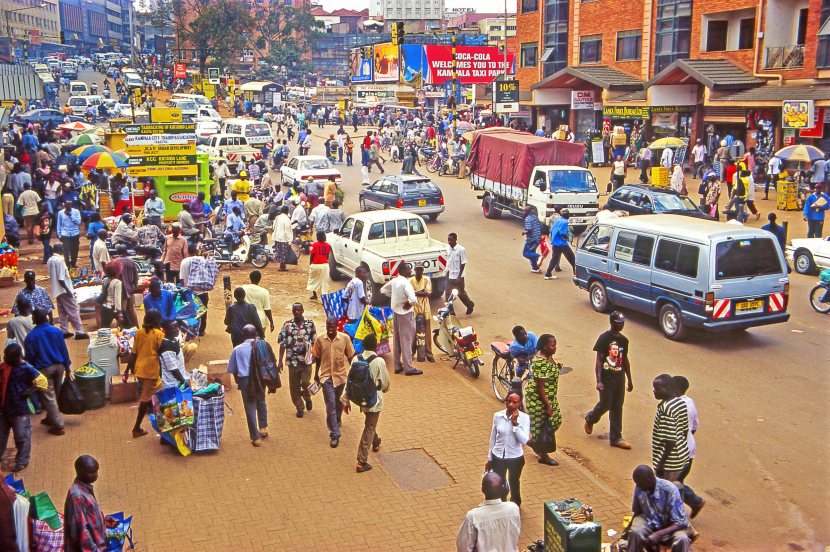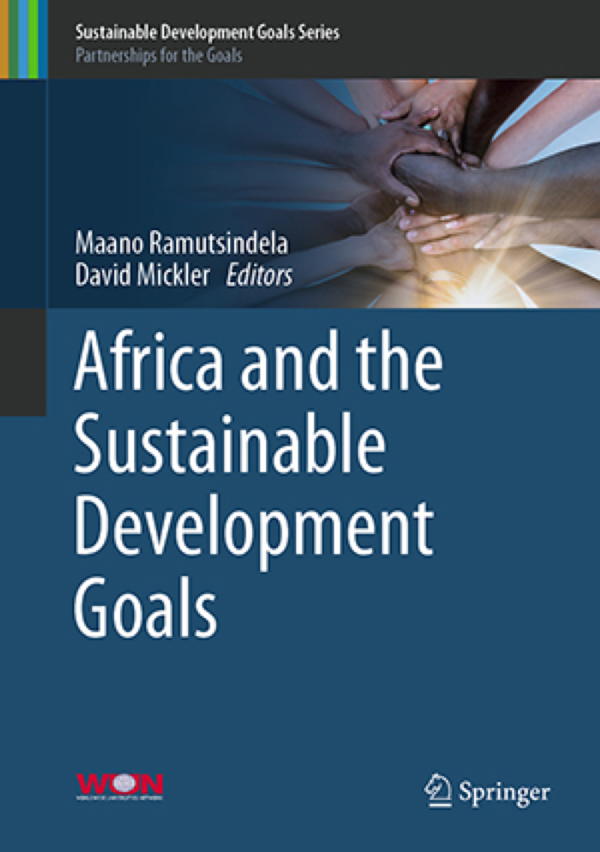
SUMMARY
WUN’s Global Africa Group (GAG) has marked the publication of a collective work to critically examine development approaches in Africa. Drawing on workshops held in Ghana, Kenya, South Africa and Australia, the book—entitled Africa and the Sustainable Development Goals—will appeal to researchers and policy makers interested in the African continent and its global connections. Editors Maano Ramutsindela and David Mickler, who were also the inaugural co-chairs of the Global Africa Group, joined with some of the book’s contributors and members of the GAG in November 2020 to discuss the significance of their research and the collaborative model that underpinned it.
STORY
Africa and the Sustainable Development Goals provides a forum for researchers to critically interrogate the SDGs as a global framework with advantages and disadvantages, examining their origins, expressions, and rivals within African contexts. The project departed from the recognition that, as co-editor Maano Ramutsindela (University of Cape Town) put it during the book launch, ‘the SDGs are not written on a blank map on Africa’.
Five themes are explored throughout the twenty-six chapters, and summarised in the introduction by Ramutsindela and co-editor David Mickler (University of Western Australia):
- The relationship between the SDGs and other development agendas on the African continent, notably the African Union’s Agenda 2063;
- The political economy of Africa’s natural resources, and specifically the extent to which those resources, which remain vital to the global capitalist economy, will contribute to development on the continent;
- The contribution of institutions of higher education to the SDGs in Africa;
- Constraints and opportunities created by the SDG framework;
- Interactions between climate, human society, and ecosystems, recognising that global environmental crises pose serious challenges to the world as a whole and in Africa in particular.
The book’s online launch featured contributions from two of the volume’s eighty contributing authors. Dorcas Osei-Safo (University of Ghana), who co-authored a chapter about North-South collaborations for natural product drug discovery, argued that ‘collaborative bids should be structured in a manner to emphasise the need for scientific research into problems that are defined by the African scientists themselves, and that these research ideas address local, national, or regional needs.’ Benard Kulohoma (University of Nairobi), co-author of a chapter on how to prioritise strengthening of health systems, concluded that ‘improvements in health information systems and adequate capacity-building will undoubtedly highlight key silences and obstacles in SDG3 actualisation and inform health policy makers, practitioners, and researchers on innovative strategies for better health in African countries.’
Although the book does cover all seventeen SDGs in some way, this was not an objective in itself and the editors were not prescriptive about how authors were to approach their contribution. Rather, they set requirements for collaboration: all chapters had to be co-authored; at least one co-author had to be based at an African university; and at least one author had to be based at a WUN university. They then considered the overall gender balance across the volume as well as the balance between early-career and more established scholars.
‘This book is a good example of how an international research network can bring value beyond what individual researchers or even groups of researchers can achieve.’
Using WUN expertise as a structuring principle allowed the Global Africa Group to achieve the volume’s ambitious reach in an unusually short time. As Mickler observed, ‘this book is a good example of how an international research network can bring value beyond what individual researchers or even groups of researchers can achieve.’
The editors’ introduction highlights the crucial role of international research collaboration in addressing development challenges, arguing that ‘global research networks are not only important for developing the scientific research capabilities of African institutions but also for these institutions to contribute to the production of global knowledge.’
Through networked collaboration, Africa and the Sustainable Development Goals thus advances the objective of research from the continent informing development thinking as the 2030 target approaches. In the Foreword, H.E. Bience Gawanas, until recently the Special Advisor on Africa to the United Nations Secretary-General and previously the African Union Commissioner for Social Affairs, describes the book as ‘a perfect example of collaboration between African and non-African academics coming together in the true spirit espoused in SDG 17, highlighting the role of collaborative research in realising the SDGs.’ She expresses a ‘sincere hope that the network will continue to undertake further policy research work on critical areas of SDGs to help inform on approaches that work best for the effective and successful implementation of the goals in Africa.’
The initiative has been met with keen interest: the book has already had 9,500 chapter downloads since its online release. Ramutsindela summarised: ‘We hope our volume will serve as a textbook on African development, contribute to the ethics of collaborative research, and challenge all of us to confront inequalities—laid bare by the COVID-19 pandemic—as a barrier to human wellbeing.’
—
The WUN Global Africa Group was established in 2015 and includes members from University of Bergen, University of Bristol, University of Cape Town, The Chinese University of Hong Kong, University of Ghana, University of Leeds, Maastricht University, Makerere University, National Cheng Kung University (NCKU), The University of Sheffield, University of Southampton, The University of Western Australia, and University of York, as well as WUN+ partners. For more information see their WUN page.

